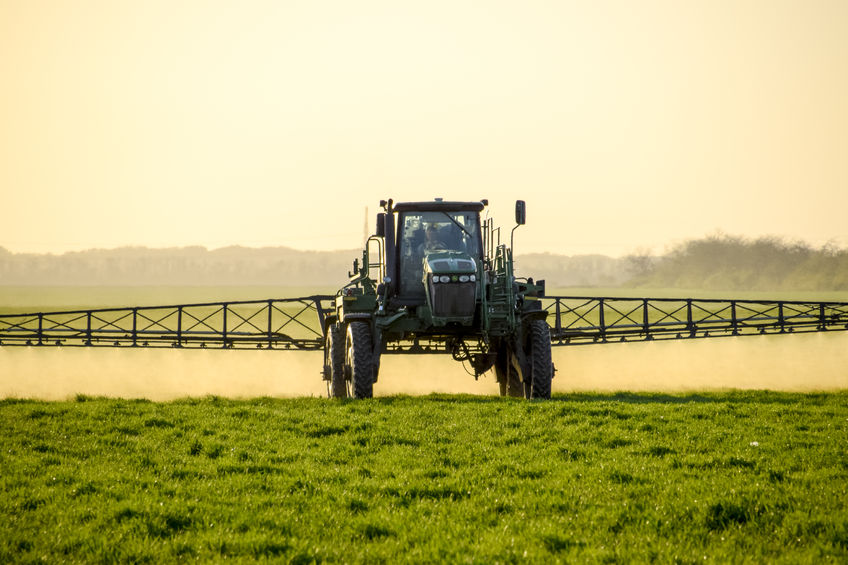Study reveals breathing problems from pesticides

New research has linked pesticide exposure to coughs, chest tightness and other respiratory issues, warning that many affected workers may remain undiagnosed.
Experts warn that workers, such as farm workers, may be suffering in silence, with respiratory illnesses often overlooked or misdiagnosed.
The study, published in the the journal Occupational Medicine, was carried out by a team from the Health and Safety Executive (HSE) Science and Research Centre in Buxton, Derbyshire.
Analysis was led by Professor David Fishwick, who highlighted the links between pesticide exposure and chest problems.
Researchers examined 5,807 workers, with a follow-up survey of 2,578 workers five years later. The group was predominantly male (98%), with an average age in the mid-50s.
The study found that 21% of workers reported nasal allergies, 14% experienced regular coughing, and 13% suffered from chest tightness.
Meanwhile, only 1.8% of workers reported work-related chest tightness, but researchers said this was still considered significant.
Interestingly, nasal allergies and chest tightness were found to be more common among workers who had not used pesticides in the past year.
Researchers suggested this could be because many may have stopped working with pesticides due to the health problems they had already experienced.
Professor Fishwick said: “Work-related chest tightness, potentially suggestive of asthma or occupational asthma was significantly associated with high pesticide exposure.”
The research reinforced existing evidence of links between pesticide exposure and respiratory issues, including impaired lung function and increased risk of asthma.
However, levels of doctor-diagnosed chronic obstructive pulmonary disease (COPD), hypersensitivity pneumonitis and chronic bronchitis were found to be very low.
Researchers concluded: “This suggests that a significant proportion of the respiratory ill health within this group may be underdiagnosed. If exposure can be reduced, ill-health can be reduced.”
Professor Neil Greenberg, president of the Society of Occupational Medicine (SOM), stressed the importance of occupational health professionals being involved in monitoring workers’ health.
“The study illustrates the importance of specialist occupational health practitioners being involved in ongoing health surveillance of farm workers where appropriate, especially as this type of worker can often slip under the health radar.
"It is vital occupational health teams are able to question, and understand, the nature and extent of exposure to pesticides among such workers if they are fully to assess their respiratory ill health.
"This study reinforces the need for vigilance in monitoring the health of all pesticide workers on an ongoing basis and, where possible, mitigating or managing the risk of exposure.”








